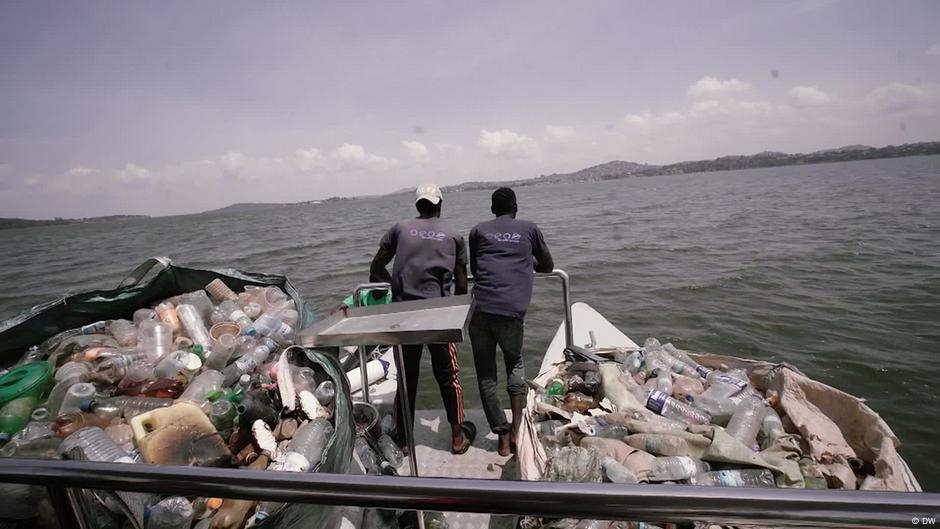By Bijou Laurelle Sounouvo
COTONOU
At 10 a.m. on the banks of the Dantokpa lagoon in Djidjè district, fisherman Baba Dénis pushes his canoe onto the calm waters alongside his father. With a weary sigh, he admits the struggle: “Once again, there are more plastic bags than fish.”
What was once a thriving fishing ground has turned into a dumping ground for waste. The lagoon, once teeming with aquatic life, is now suffocating under layers of plastic debris.
A Pollution Crisis Out of Control
Benin generates around 139,000 kilograms of plastic waste every day, according to a 2022 survey. In Cotonou, the country’s bustling coastal hub, most of this waste escapes recycling or formal collection systems, eventually flowing into the lagoon. Areas like So-Ava, which lack organized waste management, contribute directly to the pollution problem.
In 2019 alone, Benin imported 6.7 million kilograms of plastic, nearly 90% of it hazardous materials such as PVC. These plastics, researchers warn, can take up to 400 years to decompose, posing long-term risks to the ecosystem.
Fishermen Paying the Price
For artisanal fishermen, the crisis is devastating. Fish are fleeing polluted areas, breeding grounds are being destroyed, and nets are increasingly clogged with plastic waste instead of fish.
“Before, we used to come back with more than 20 kilos of fish. Now, we struggle for hours to bring home barely two kilos—or nothing but trash,” says Baba Dénis, echoing the hardship of countless fishing families.
The economic blow is severe, but so are the health risks. Stagnant, polluted waters foster mosquitoes, waterborne diseases, and other public health threats.
Victims and Perpetrators
While local communities bear the brunt, they also contribute to the crisis. With limited alternatives, many residents burn or dump plastics into the lagoon. This persists despite a 2017 law banning the production, import, sale, and use of non-biodegradable plastic bags.
Environmental specialist Fulbert Adjimehossou argues that laws alone are not enough. “The problem is not so much the use of plastic, but its disposal. For a law to work, there must be enforcement, awareness, education, and behavioral change,” he said.
Searching for Solutions
Citizen-led initiatives are emerging to tackle the crisis. The “Zero Plastic” campaign, spearheaded by activist Anas Séko, pushes for systemic change and a shift away from single-use plastics. “Recycling alone is not the solution,” he insists. “We need a systemic approach to reduce plastic at the source.”
Meanwhile, entrepreneurs are finding creative ways to give waste a second life. Independent consultant Roosevelt Sovi Olusegun transforms discarded plastic into usable products such as paving stones, bricks, flower pots, and even irrigation tools that conserve water.
Experts argue that real progress depends on reducing plastic at its entry points making it less available and more expensive, thereby forcing consumers to seek alternatives.
For fishermen like Baba Dénis, every day spent pulling waste instead of fish is a reminder of the urgent need for action. Unless solutions are scaled up, artisanal fishing, a lifeline for many families risks drowning under the weight of plastic.
As Cotonou’s lagoon gasps for breath, one thing is clear: every plastic bag not dumped, every fishing net spared from waste, is a small but vital victory in the fight to save livelihoods and biodiversity.


